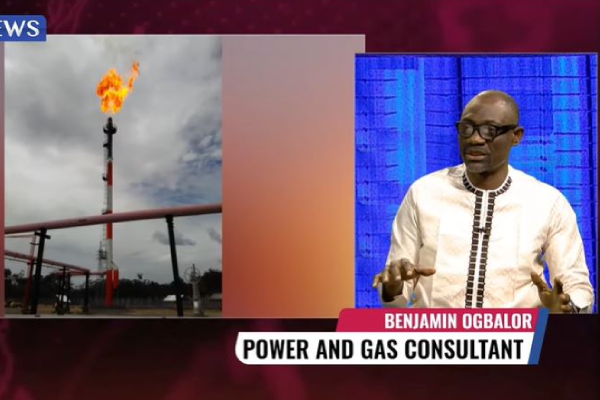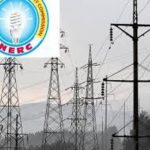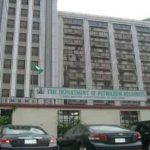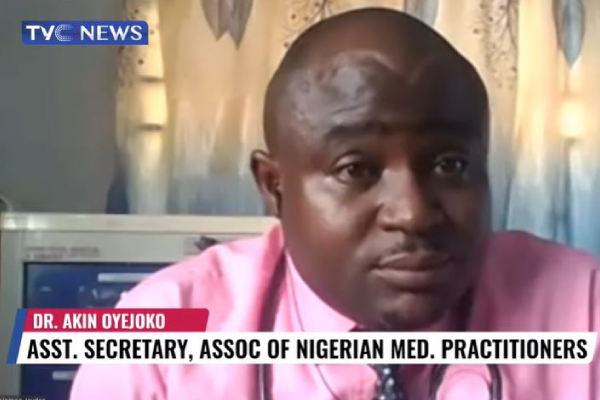Nigeria, alongside six other countries in the world, accounts for 65% of global gas flaring.
Over the past 60 years, gas flaring and venting have been associated with petroleum exploration and production production in Nigeria. This is a situation that continues to affect the environment and human health negatively and also caused great loss for the Nigerian economy.
Speaking on the issue of gas flaring on TVC Breakfast, gas consultant, Benjamin Ogbalor gave an insight on what brings about gas flaring.
[wonderplugin_video iframe=”https://youtu.be/jBQS-ELeUIo” lightbox=0 lightboxsize=1 lightboxwidth=960 lightboxheight=540 autoopen=0 autoopendelay=0 autoclose=0 lightboxtitle=”” lightboxgroup=”” lightboxshownavigation=0 showimage=”” lightboxoptions=”” videowidth=600 videoheight=400 keepaspectratio=1 autoplay=0 loop=0 videocss=”position:relative;display:block;background-color:#000;overflow:hidden;max-width:100%;margin:0 auto;” playbutton=”https://www.tvcnews.tv/wp-content/plugins/wonderplugin-video-embed/engine/playvideo-64-64-0.png”]
He said when oil is produced, it comes along with gas. But unfortunately, Nigeria does not prefer to use gas.
According to him, when gas is quietly released into the atmosphere, it is termed ‘venting’ but when it is burnt, it is referred to as ‘flaring’
Mr Ogbalor noted that while flaring is dangerous, venting is 20 times worse than flaring.
He added that gas being flared is a very useful resource that can be used for so many things.
“For instance, LPG, methanol, and fertilizer can all be produced from gas flaring.
“If industries are set up to use it as feedstock, the gas can also be used to create chemicals and other products that people can use.
“It can also generate employment, revenue for our livelihoods.
The gas consultant stated that Nigeria for so many years has talked about gas flaring but in reality nothing has been done as regards the issue.
“For so many years the government has been coming up with pronouncement regulations and laws on how they can combat flare. However, not much obligations of punishment.
“When you don’t punish or enforce laws, people will continue to do what they’re doing. That is what is happening in that sector.
He added that regulations are already in place that needs to address those who are flaring.
Speaking on the impact of gas flaring on the environment and society, Mr Ogbalor stated that the situation is pretty bad but
in the last ten years, Nigeria has been able to reduce the volume of gas that is flared by about 70% but a lot more needs to be done.
Speaking on the gas flare regulatory framework, Mr Ogbalor said the regulatory framework, of 2018 increased the fine to $2 which became really significant but brought other issues.
“As soon as that happened, suddenly the numbers of flaring reported dropped.
“It was significant that the very year that regulation committed force, Nigeria’s volume came down which was also suspicious.
“Fortunately we now have technology, Nostra, a satellite resource in place to check to be able to assert what’s been flared from space.
“And that has also shown that there’s significant discrepancy between what is being reported by Nigeria and the actual satellite reporting.
“The difference in discrepancy started when this regulation of 2018 came into force. From 2013 to 2018 both the satellite figures and what was reported by the operators were at par. But as soon as the penalties were jacked up, suddenly the volume reported by operators dropped.
Gas flaring is a serious issue, Mr. Ogalor continued, because it also has an impact on the environment.
“We must put out the flare in order to protect our population’s health. And because flaring has to do with conditions like cancer, any illness that affects humans can also affect













